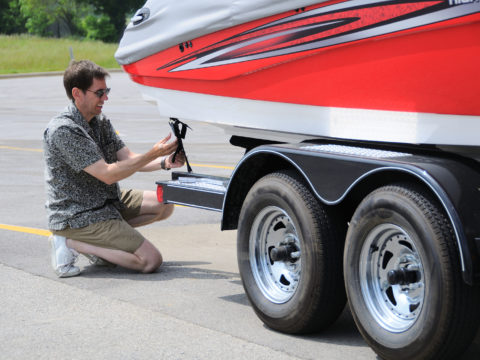Boats, even tiny ones, can be incredibly complex. A modest little powered fishing boat with a few basic comfort-giving amenities, for example, could have a dozen different electrical circuits for different functions. This would be in addition to the range of equipment onboard from the engine itself to the electrical backup system and the various pumps for bilge, washdown and head. The complexity rises exponentially as boats become larger, when they get air conditioning, generators and so on. Scheduling regular maintenance is critical. The questions to deal with are, when to do it, and how.
It is the rare boating enthusiast who has expert knowledge of marine-grade fiberglass, motors and electrics. Even when you do know your way around these systems, it can be hard to justify the days of time that you will need. You need to bring in the experts — twice a year.
Starting with the fall schedule
When your boat has given you a full summer’s service, it’s time to attend to its needs before you put it away for the winter. The engine, transmission and crankcase will need care. From topping up the engine, lower unit and gearbox with fluids to clearing rust prevention fluid, purging the freshwater systems, inspecting the oil lines and checking the filters, there’s a lot to do. Coolant, antifreeze and water lines will need clearing, and will need treatment for potential damage against freezing.
The bilge will need clearing, and you’ll need to have the boat closely inspected for corrosion or damage to the hull. Any damage needs to be repaired before the boat is put away. If you need to buy parts for your boat it’s best to have an expert technician decide on it and source them. Boat parts tend to be less standardized than automobile parts. It can take far greater expertise to find the right fit.
If the boat will be moored far away from where you live, the batteries will need care. If the boat will be in the water in a place where temperatures fall below freezing, the mooring area will need constant water circulation to prevent ice expansion damage. The boat’s interior will need a constant source of heating, as well.
Taking your boat out of storage in spring
When your boat has been sitting in storage for months, it needs some special care to get up and running. It’s a good idea to check again for corrosion damage sustained through winter, and make repairs before you start using the boat. The batteries will need checking before reconnection, and you will again need to top off fluids. If any systems from the engine to the fluid circulation pumps have developed faults over a harsh winter, it can take expert ears here to listen for the signs.
In many ways, boat maintenance isn’t unlike the maintenance of a house, only, boats tend to be more complicated. The earlier you decide to let experts handle the myriad tasks involved, the better the level of care is that your boat receives.
